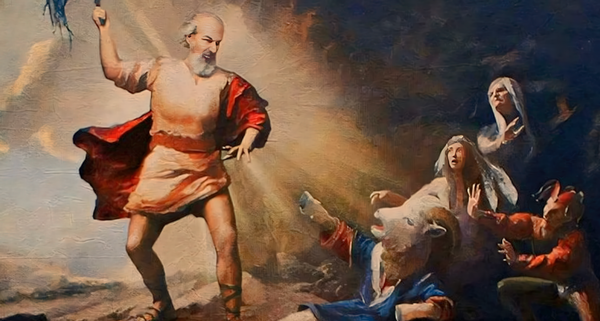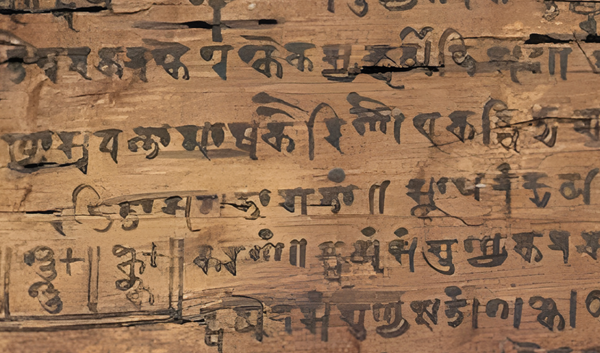The Global Consciousness Random Number Generator
The Global Consciousness Project (GCP) was born out of a desire to explore the uncharted territories of human consciousness and its interaction with the physical world, has become a focal point of my personal and professional journey.

The Global Consciousness Project (GCP) was born out of a desire to explore the uncharted territories of human consciousness and its interaction with the physical world, has become a focal point of my personal and professional journey. I will try to explain the GCP, sharing both its scientific foundations and the impact it has had on me. As we delve into this exploration, you will gain insights into the project's basics, its groundbreaking work with Random Number Generators (RNGs), and notable studies that mark its journey. Furthermore, I will share my personal narrative of engagement with the GCP, highlighting the synergy between my professional expertise in analytics and the project's objectives. Finally, I'll guide those interested in contributing to the GCP, outlining steps for involvement and emphasizing the power of collective effort in this groundbreaking field.
The Concept Behind GCP
The Global Consciousness Project, originating from Princeton University's PEAR laboratory, is a revolutionary endeavor that combines the realms of psychology, quantum physics, and computer science. Its inception in the late 1990s stemmed from a hypothesis that human consciousness can interact with random systems, an idea rooted in quantum mechanics and the collective unconscious. The GCP seeks to understand if, and how, human consciousness can coalesce into a global consciousness, especially during significant global events.
The Role of Random Number Generators
The pivotal role of Random Number Generators (RNGs) in the Global Consciousness Project cannot be overstated. These devices, strategically placed around the world, are the linchpins in the project's quest to empirically test the hypothesis of global consciousness. RNGs are designed to produce sequences of numbers that should be entirely unpredictable, operating on principles of quantum mechanics that ensure true randomness.
The significance of RNGs in the GCP lies in their function as sensors or detectors of potential shifts in global consciousness. When significant global events occur - be they moments of widespread joy, sorrow, or any collective emotional experience - the GCP closely monitors the data from these RNGs for any deviations from randomness. Such deviations, if found consistently and significantly, could suggest an interaction between human collective consciousness and physical systems.
The data from RNGs during events like the 9/11 attacks, natural disasters, or global celebrations have occasionally shown statistically significant deviations. These findings, while not conclusive, open fascinating possibilities. They suggest that the collective human mind might have a subtle but detectable impact on physical systems. Understanding this interaction not only challenges traditional notions of consciousness and physics but also opens new frontiers in exploring the interconnectedness of human emotions and the material world.
The RNGs used in the GCP are more than just number generators; they are at the forefront of a potentially groundbreaking understanding of consciousness. By capturing minuscule, yet potentially significant, changes in randomness, they provide a unique window into the elusive nature of collective human consciousness and its interactions with the physical universe.
Notable Studies and Findings
The Global Consciousness Project (GCP) has been a part of several notable studies, each aiming to understand the correlation between global events and deviations in random number sequences.
- September 11, 2001, Attacks: Perhaps the most cited example in GCP's research is the data observed during the September 11, 2001, terrorist attacks. The RNGs recorded significant deviations from randomness during and immediately following the events of that day. This anomaly in the data was intriguing because it suggested a possible global reaction to a traumatic event, captured through RNGs spread across the world.
- Global Events and Celebrations: Other studies have focused on global events that induce a wide range of emotions, such as New Year's celebrations, moments of silence in memory of significant figures, and major sports events like the FIFA World Cup. The hypothesis is that moments of collective joy, reverence, or excitement might influence the RNGs. While some of these events have shown interesting deviations in RNG data, the interpretations remain speculative and open to further research.
- Controlled Experiments: In addition to observing real-world events, the GCP also conducts controlled experiments. These experiments involve specific time periods during which participants focus their attention on a common goal or thought. The RNG data collected during these periods is then analyzed to detect any deviations from randomness that could indicate an influence of focused collective intention.
- Longitudinal Analysis: Over the years, the GCP has accumulated a vast amount of data, allowing for longitudinal analyses. These studies look at RNG data over extended periods to detect any overarching patterns or trends that might be obscured in shorter-term studies. Such analysis is crucial for understanding the potential long-term effects of collective consciousness on physical systems.
- Statistical Significance: The GCP places a strong emphasis on statistical methods to assess the data collected. It employs rigorous statistical analyses to determine the likelihood that the observed deviations in RNG data could occur by chance. While some studies have shown statistically significant results, the GCP maintains a cautious approach in interpreting these findings, acknowledging the complexities and challenges in studying such a novel and controversial field.
Each of these studies contributes to a growing body of research exploring the boundaries between consciousness and the physical world. The findings, while not definitive, open the door to fascinating questions about the nature of consciousness and its potential collective impact. They also provide a foundation for future research, inviting a deeper exploration into the mysterious and profound connections that may exist between the human mind and the material universe.
Initial Discovery and Curiosity
My initial discovery of the Global Consciousness Project (GCP) was profoundly influenced by two pivotal scientific articles. The first, "Correlations of Continuous Random Data with Major World Events," published in the journal "Foundations of Physics Letters" in December 2002, delved into the GCP's examination of how continuous random data may correlate with significant global events. Authored by R. D. Nelson, D. I. Radin, R. Shoup, and P. A. Bancel, this paper was a revelation in understanding the potential interaction between human consciousness and physical phenomena during major global events.
The second article that shaped my understanding was featured in the "Journal of International Society of Life Information Science." In this piece, Roger D. Nelson discussed a long-term experiment by the GCP, focusing on non-random structures in synchronized random data streams during significant global events. This study, involving a global network of random number generators (RNGs), indicated substantial departures from expected randomness, suggesting a potential effect of human consciousness on physical systems, particularly through collective human attention and emotion.
These articles were not just informative; they were transformative in shaping my curiosity and skepticism into a focused interest in the GCP. They provided a scientific foundation to the project's intriguing premise, propelling my journey from initial intrigue to deeper engagement with the project.
Opportunities for Participation
The Global Consciousness Project offers a variety of ways to get involved, from volunteer roles to active research participation. Individuals from diverse backgrounds can contribute their unique skills and perspectives, enriching the project's multidisciplinary nature. Whether it's through data collection, analysis, or contributing to theoretical discussions, every effort plays a crucial role in advancing the project's objectives.
Acquiring a Random Number Generator
A key component of participating in the GCP is the use of Random Number Generators (RNGs). These devices are central to the project's research, capturing potential shifts in global consciousness. For those interested in a more hands-on role, acquiring a personal RNG is a significant step. The HeartMath Institute, collaborating with the GCP, offers RNGs tailored for this purpose. These devices can be purchased from their online store at HeartMath Store. The site provides detailed information on the various models available, along with instructions on their use and integration into the GCP's data collection network.
The Importance of Community and Collaboration
Joining the GCP community is not just about contributing data; it's about being part of a global effort to understand human consciousness. This project thrives on collaboration, bringing together individuals from various fields and backgrounds. By participating, you join a network of researchers, enthusiasts, and professionals, all united by a common goal of exploring the unknown territories of collective consciousness.
The Global Consciousness Project represents a unique fusion of science and the profound enigma of human consciousness. My journey with the GCP has been both a professional enrichment and a personal revelation, deepening my understanding of our interconnectedness. I encourage you, the reader, to join this pioneering venture. Whether through purchasing an RNG, volunteering, or simply engaging with the community, your contribution can make a significant difference. Visit the GCP website, explore how you can get involved, and take the first step towards being part of this groundbreaking exploration.




